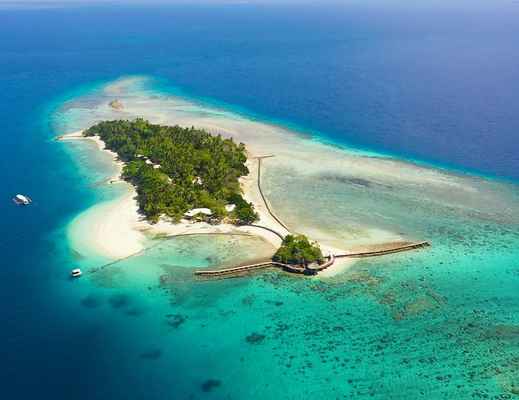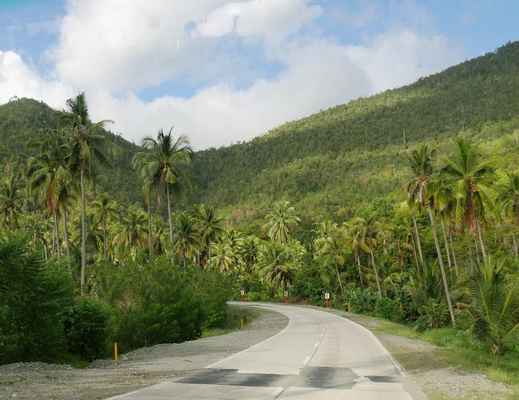


Davao
Asia
/
Philippines
/
Davao
Nestled on the southeastern coast of Mindanao, Davao City is the Philippines' third-largest urban center, boasting a unique tropical climate that remains relatively typhoon-free compared to other parts of the country. The city enjoys warm temperatures year-round, with a dry season from November to April and a wet season from May to October, though rainfall is fairly evenly distributed throughout the year.
Davao's culture blends indigenous Mindanaoan traditions with Spanish colonial influences and modern Filipino city life. The local Davaoeños are known for their disciplined, law-abiding nature, resulting in one of the safest large cities in the Philippines. The population is diverse, with significant Muslim and Lumad (indigenous) communities living alongside the Christian majority, creating a uniquely harmonious multicultural environment.
What makes Davao special is its remarkable balance of urban convenience and natural wonders. Often called the ""Durian Capital"" and ""Fruit Basket of the Philippines,"" the city is surrounded by lush agricultural lands producing exotic fruits like mangosteen, rambutan, and the famously pungent durian. Mount Apo, the Philippines' highest peak, serves as a dramatic backdrop to the city, while the pristine waters of Samal Island lie just a short boat ride from the urban center.
Food enthusiasts will delight in Davao's culinary landscape, where must-tries include fresh durian (if you're brave enough to tackle its notorious smell), kinilaw (Filipino ceviche often made with tuna caught that morning), and sinuglaw (a combination of grilled pork and raw fish). The city's proximity to the sea means incredibly fresh seafood, while its multicultural makeup ensures a diverse array of dining options from traditional Filipino to fusion cuisine.
No visit to Davao is complete without experiencing the Philippine Eagle Center, a conservation sanctuary for the critically endangered Philippine Eagle, one of the world's largest and most powerful birds of prey. For nature lovers, Eden Nature Park offers a cool mountain retreat with organic gardens and adventure activities. Cultural enthusiasts should time their visit with the vibrant Kadayawan Festival in August, a week-long celebration of Davao's indigenous cultures, abundant harvests, and natural beauty featuring colorful parades, street dancing, and fruit competitions.

Get to Know Davao
Take a tour of this destination's highlights
Popular Areas in Davao

Travel Tips for Davao
What you need to know before traveling here
Getting Around Davao
A guide to Davao's local transportation
Water taxis such as boats and ferries are an important form of transportation in Davao, considering the city’s proximity to the coastline. Traveling from Davao to Samal Island from Sasa Ferry Wharf costs around PHP 10. Boat fares from Santa Ana, Davao, to Talikud Island start from PHP 130 - 200 per person. Activities at Davao ports last from dawn to dusk. It's best to find out the schedules before starting your voyage.
Practical Tips for Davao
Things to prepare and best way to visit
If you're not up for the challenging 2-3 day hike to Mount Apo's summit, consider visiting Eden Nature Park or the Philippine Eagle Center, both located on the mountain's foothills. For a middle-ground experience, arrange a day trip to Kapatagan in Digos City (about 1.5 hours from Davao), where you can enjoy mountain views and experience the highland environment without a strenuous climb. Tour operators in Davao can arrange these alternatives.
A few things to pay attention to while in the Philippines: Greet people with a sincere smile. Start with the elders first, then the younger ones next. It's best not to raise your voice or display your anger in front of the elderly or those who are superior to you. Be careful, leaning on other people while at the dinner table is considered rude by the locals!
Bring a pocket WiFi, comfortable and proper clothing, and cash. Don't forget to get travel insurance. If your main destination is Samal Island, book your accommodation in advance. Store items in a safe place and do not show off valuables when in public spaces.
From Francisco Bangoy International Airport (commonly called Davao International Airport), you have several options. Taxis are readily available outside the arrival area, costing around 200-300 pesos to downtown (approximately 30 minutes). Grab rideshare is also operational and sometimes offers better rates. For a budget option, walk to the main road and catch a jeepney for about 15 pesos, though this isn't recommended with heavy luggage.
Davao is a multicultural city with significant Muslim and indigenous populations. When visiting mosques or indigenous communities, dress modestly with shoulders and knees covered. Remove shoes before entering homes or religious buildings. Be respectful when taking photographs, especially of people, and always ask permission first. The city has strict anti-smoking laws, prohibiting smoking in almost all public places, with hefty fines for violations.
See All Practical Tips for Davao

Explore Davao
Create your itinerary with our top picks below

Get to Know Davao

Travel Tips for Davao

Explore Davao
More Destination Near Davao

































 Facebook
Facebook Instagram
Instagram TikTok
TikTok Youtube
Youtube Telegram
Telegram
